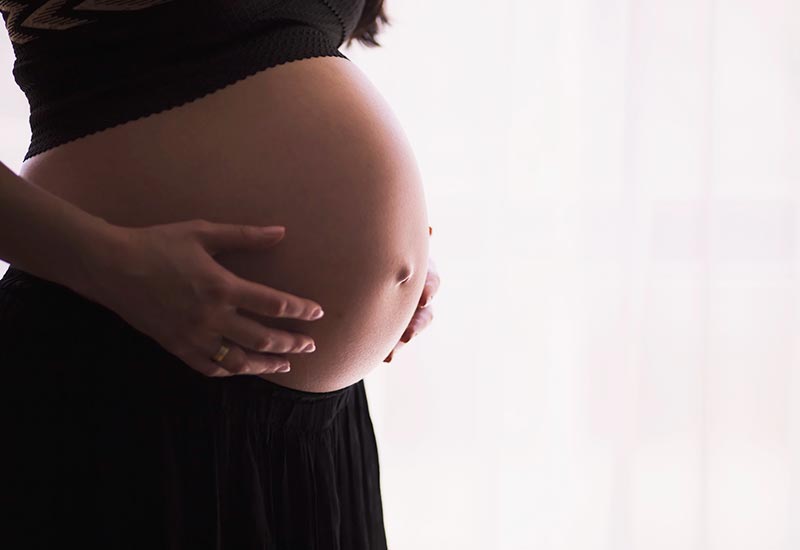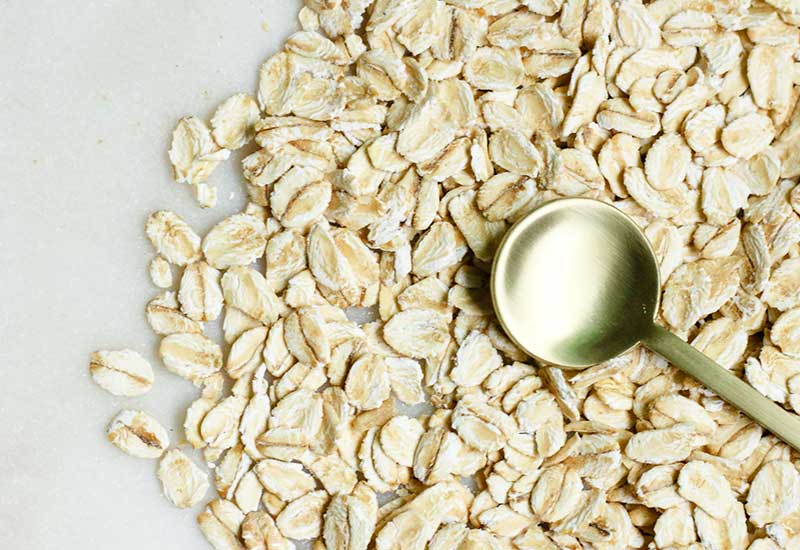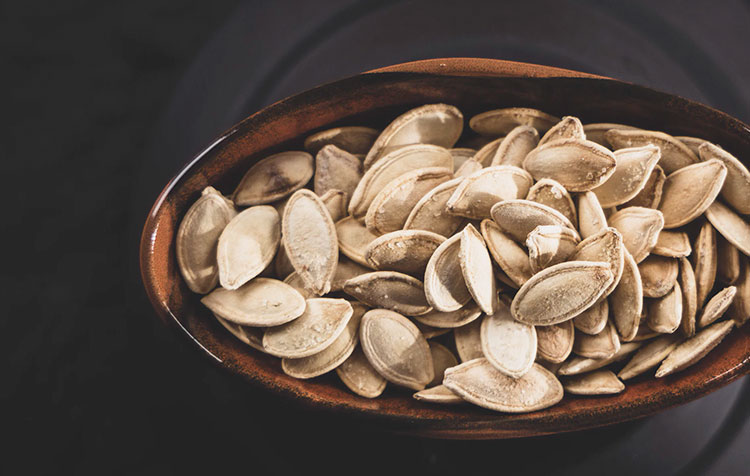You want to learn more about iron deficiency, recognize it faster and treat it properly? Then you've come to the right place. Iron is one of the most important building blocks of a healthy human body. Unfortunately, a deficiency of the trace element is widespread in many Western nations and can be recognized by a variety of physical symptoms.
Since an iron deficiency often remains undetected, I would like to help with this article to ensure a sustainable supply of iron. Let's go!
Here you can find a short overview in advance:
Notice: This article is not a substitute for medical advice, but only provides general ways to correct an iron deficiency. Please see your doctor if you feel unwell or want to prevent health problems with medical care.
Iron - The neglected nutrient
The chemical element is found, very finely distributed, in every human body. A healthy organism has a total of a few grams of iron, mostly as a component of red blood cells.
Even if a healthy and sustainable nutrition is on the menu, few people constantly think about a sufficient supply of iron. Since, as with most nutrients, a gradual depletion takes place, iron must be taken in regularly through the diet. Our modern eating habits are not necessarily designed for thisiron deficiency has become a widespread disease, which in turn affects others, diet-related diseases can have as a result.
What makes the situation more difficult is that even if sustainable consumers Supply sufficient nutrientsthey often do not know how much iron is contained in a food. Unlike vitamins and minerals, the iron content is rarely indicated on packaging.
What does iron do in the body anyway?
Iron is Basis for the formation of the pigment of the red blood cellsalso called hemoglobin. In addition to coloring, iron performs a very useful task: oxygen absorbed through respiration binds to the iron and can be moved through the bloodstream to all the cells of the body.
If an iron deficiency occurs, the production of hemoglobin is no longer regulated. Oxygen can no longer be transported properly through the body, which far-reaching consequences for the vitality and functioning of our organism has. After all, a basic building block for the production of a sufficient number of red blood cells is missing, so that the entire supply system of the body can come apart at the seams.
Can I store iron in the body?
The good news: Yes, the body stores iron absorbed through food as so-called Ferritin in. This storage takes place primarily in the spleen and liver. If an iron deficiency occurs, the body can first use up the stored ferritin before real deficiency symptoms appear.
Unfortunately, millions of people in this country are not able to help themselves to the stored ferritin. Due to malnutrition, the Supplies mostly long since depleted. It is not possible to store iron again, since the iron absorbed through food is needed directly for the production of hemoglobin.
Symptoms: How does an iron deficiency manifest itself?

The importance of iron for the human body is not limited to the formation of hemoglobin. The trace element is an important component of other body building blocksfor example, of myoglobin as an important muscle protein. The symptoms are therefore also of a multifaceted nature. However, it manifests itself particularly frequently when red blood cell production falters.
Typical consequences and signs of an insufficient supply of iron to the body are mainly:
- Brittle hair and nails
- Torn corners of the mouth
- Very light skin coloration
- Blistering in the mouth
- Constant feeling of tiredness
- Lack of motivation
- …
Many of the physical symptoms arise because the organism transmits the available and bound oxygen to vital organs and ensures their functional efficiency. In comparison, shiny hair or beautiful fingernails are a "luxury good" of the body. In the case of a severe intrinsic deficiency, the entire supply of oxygen to the organism can suffer. This is then reflected above all in poor performance, fatigue or lack of concentration.
Tip: How to get away from iron deficiency become fundamentally more concentrated I'll explain how you can do this in a separate article. Feel free to have a look!
Causes: When does iron deficiency often occur?

Can I actually prepare myself for an iron deficiency? Ideally, the undersupply of the essential trace element does not occur in the first place. Among other things through the Targeted consumption of iron-rich foodssuch as legumes, green vegetables, nuts, seeds and kernels, you can prevent the health problem, for example.
However, in some phases of life the iron deficiency can be expected due to the greater load on the body. Also, taking an iron supplement can then help your body in situations when a lot of red blood cells need to be produced or the organism performs at its best.
Iron deficiency is particularly common in:
- Pregnant and breastfeeding women
- Blood donors directly after blood collection
- Competitive athletes
- Intensively physically working people
- …
Since all these situations can be assessed, you can also take iron as a preventive measure. In this way, you alleviate the threatening effects of an undersupply of oxygen and prevent a lack of hemoglobin from occurring in the first place.
Treatment: How can iron deficiency be treated?

To Treat iron deficiency properly the first step, together with your family doctor, is to determine the Cause to be clarified. In pregnant women or competitive athletes, the deficiency can usually be explained immediately. Here it is worth taking iron over a limited period of time during which the particular stress.
In other cases, it is necessary to find out whether the body is being supplied with a sufficient amount of iron. There are people who consume the recommended daily dose through a healthy and balanced diet and yet suffer from iron deficiency. In such cases, a Metabolism disorder which must be diagnosed and treated by the attending physician.
However, for the majority of those affected, the deficiency in iron occurs because insufficient amounts of the trace element are supplied in the daily diet. A Adjustment of the menu or the Taking supplements can solve the problem in the long term.
How much iron should I consume?
Depending on size, age and gender, it is assumed that the human body can store between two and four grams of iron. This would be the equivalent of 2,000 to 4,000 milligrams. On average, it is assumed that the body relies on 1.0 milligrams of iron per day.
The problem: The gastrointestinal tract can only utilize a fraction of the iron supplied through the diet.
Roughly, one tenth is assumed to become the trace element available to the body from the iron in food. With a requirement of 1.0 milligrams per day should therefore be a minimum of 10.0 milligrams of iron supplied daily through the diet should be taken. In order not to be exactly at this lower limit, the intake of 12.0 to 15.0 milligrams per day is often recommended.
Provided that the individual iron requirement is covered, additional iron would serve to store it in the body. It is therefore It makes sense to supply more than the mentioned 15.0 milligrams over a longer period of time.to slowly build up a new iron store in the body. The organism can help itself to this if a renewed deficiency occurs via the diet.
Special cases mentioned above, such as Pregnant women or competitive athletes, the increased intake is accordingly of 20 or 30 milligrams per day is recommended. Your attending physician can determine which value is individually sensible based on the evaluation of your blood values. During pregnancy, monitoring of iron levels is obligatory anyway.
Can I take in too much iron per day?
Anyone who has recognized that there is an iron deficiency will want to compensate for it as quickly as possible. Here it is of little use to feed an overdose of iron over a short period of time and believe that the body will store these large amounts. Those who read serious reports and Books on the subject of nutrition knows: Many of the nutrients supplied are not metabolized and excreted again if they are supplied in too large quantities in too short a time.
Doctors advise against overdosing on iron due to the threat of organ damage. This is difficult to achieve with Western eating habits anyway, basically only through an overdosed intake of dietary supplements. In case of a longer intake of such means, you should therefore consult your family doctor. He knows the most important Reference values for vitamins and minerals for which a deficiency is imminent.
Is a vegetarian diet a risk factor?
Traditionally, meat and other animal foods have been known to contain more iron on average than plant foods. Fortunately, iron is also present in many plants. Those who, like me, eat a vegan diet are nevertheless at greater risk of iron deficiency. Iron is one of the potentially critical nutrients during the vegan lifestyle.
It is not so much the amount of iron in the food that plays a role here, but the possibility of absorption by the organism. The above figure of 10 percent iron entering the metabolism from food can be broken down again. Animal iron, due to its chemical structure, is absorbed as "bivalent iron" with an average share of 20 percent. Plant iron, also called "trivalent iron," averages 5 percent. This means that Es requires a significantly larger amount of plant foodsto reach the daily dose of iron.
Especially for vegetarians and vegans, it therefore makes sense to have their iron levels checked regularly. By taking a supplement, the deficiency can definitely be compensated for in the long term without having to compromise on dietary habits.
Which foods can I take in iron?

Many animal products such as meat are known to provide iron. Especially blood sausage, liver or beef and pork. But since I eat a purely plant-based diet, I switch to vegan iron suppliers. These include especially:
- Pumpkin seeds (12.5 mg per 100 gram)
- Soybeans (11 mg per 100 gram)
- Hulled hemp seeds (9.6 mg per 100 gram)
- Lenses (8 mg per 100 gram)
- Quinoa (8 mg per 100 gram)
- Tempeh (5 mg per 100 gram)
- Oatmeal (4.6 mg per 100 gram)
- Dried apricots (4.4 mg per 100 gram)
- Hazelnuts (3.8 mg per 100 gram)
Soy and lentils are good sources of iron, which should ideally be consumed daily. There is no general recommendation for the consumption of iron; instead, an iron deficiency that is discovered should always be accompanied by a doctor. This shows how much iron per day is supplied by food. If this is not compatible with your own lifestyle or current situation, you should consider supplementing with an iron supplement.
Should I turn to a dietary supplement for iron deficiency?
High quality supplements are useful, but do not have to be taken for every iron deficiency. Thus, the attending physician can determine that an extremely unhealthy diet with a variety of deficiency symptoms is present. If a new and balanced diet is worked out here, the deficiency of iron and other trace elements, minerals and vitamins should be eliminated in the long term.
At the other end of the spectrum are pregnant or breastfeeding women, who are almost always advised to take an iron supplement for several months. In the middle are people who otherwise have no major deficiencies in nutrients and only have a deficit in iron. This can be changed with a targeted intake of a preparation to remain efficient and to fill the internal storage.
Basically, I can recommend you the following supplements with iron:
- Vegan multi-nutrient capsules: you get here*
- Iron capsules with vitamin C: you get here*
Is there anything I need to be aware of when taking it?
As if the absorption of iron by the body were not just difficult enough, other components of food can slow it down. One example is caffeine, which is found in Tea and coffee can be found. The tannins contained bind the iron ions already in the stomach so that they cannot enter the metabolism. Anyone who regularly reaches for a cup of coffee throughout the day should not be surprised about an iron deficiency.
It is generally recommended to take an iron supplement with sufficient distance to meals. Capsules should only be washed down with a little water when taken. This ensures that no undesirable binding of the iron takes place and that the maximum amount of bivalent or trivalent iron enters the bloodstream via the intestine.
At the beginning should also carefully dosed be. The absorption of iron not infrequently leads to stomach pain, and a dark coloration of the stool is also not uncommon. These are normal signs of the body and prove that a substantial part of the supplied iron cannot be absorbed by the organism. If the patient becomes accustomed to it after a few weeks, the dose can be increased if necessary.
Iron deficiency can usually be remedied
Iron deficiency is not uncommon in Germany and many Western nations. Poor nutrition is often to blame, which no longer allows the body to build up its own iron stores. Special features of life, such as regular competitive sports or pregnancy, become an additional burden. But as a rule, an iron deficiency is one of the health problems that can be quickly diagnosed and specifically remedied.
By changing the diet or taking iron supplements, it is possible to gently combat the deficiency. Often, treatment over a few months is sufficient to replenish the internal iron stores. This should be done under medical supervision according to individual blood count, so that over- or underdosing does not occur. So please do not hesitate to consult your doctor if you experience the symptoms described above.
Do you have any questions, tips or your own experiences with an iron deficiency that you would like to share? Then I look forward to your comment.
Stay healthy,

PS.: Do vegans actually have better blood values? You can get the answer now in the linked blog article!






